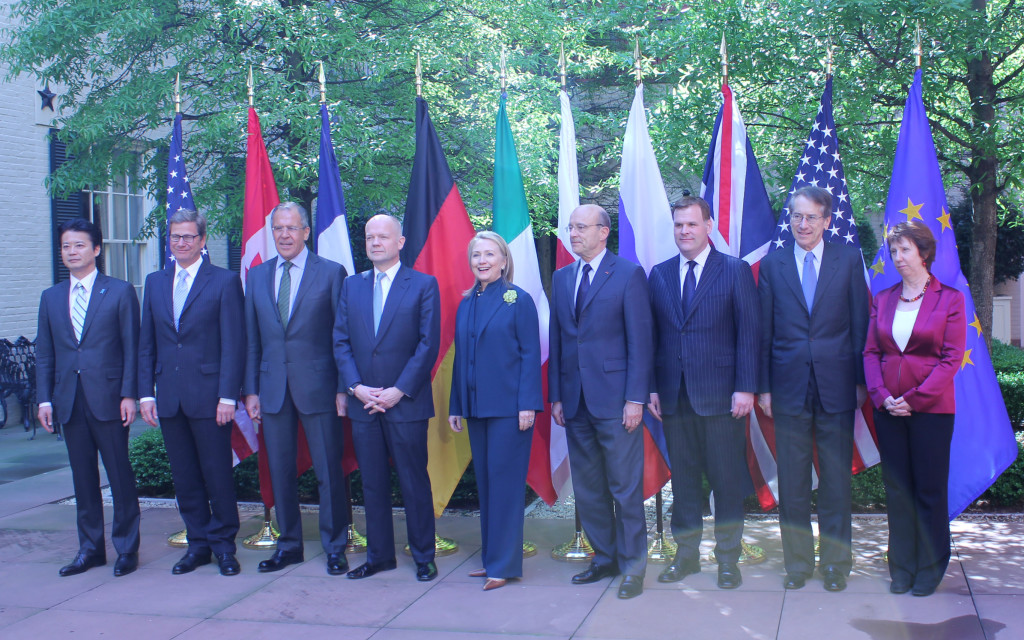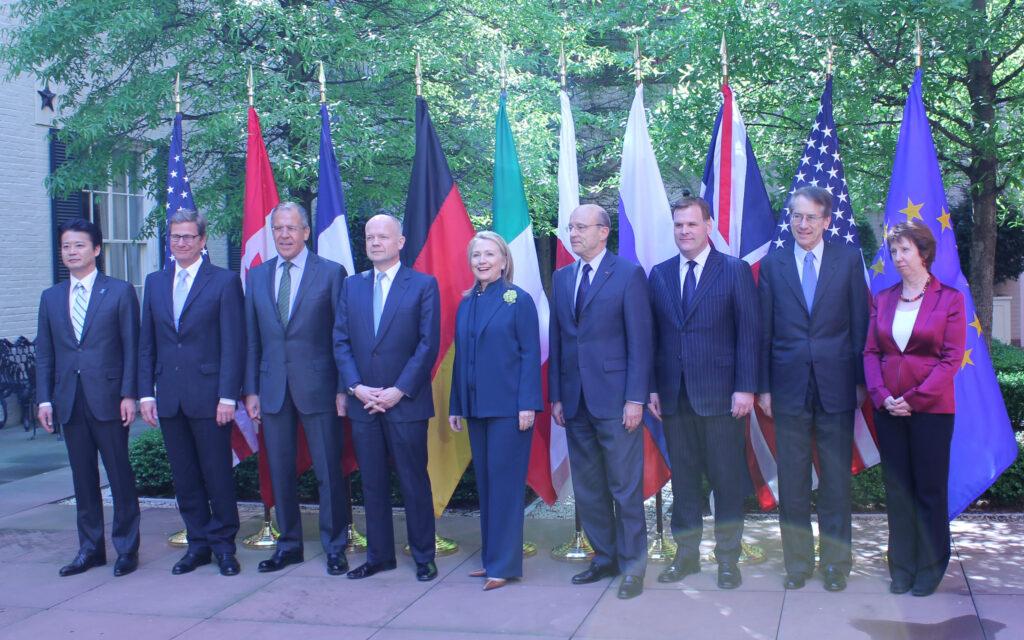
As the United States edges ever closer to another presidential election in 2016, foreign policy discussion on the campaign trail has turned ugly. A leading candidate for the Republican Party nomination openly stated that they would ban all Muslims from immigrating into the country, while another mused aloud on the feasibility of glow-in-the-dark sand in the deserts of the Middle East. Given these first few months, it appears a number of candidates feel that apocalyptic force is the only viable US foreign policy strategy.
The good news is that polls and pundits alike do not anticipate Donald Trump or Ted Cruz to occupy the Oval Office come January. Professional consensus on the 2016 election sees the Democratic frontrunner, Hillary Clinton, becoming President at the end of the year, partly as a result of her vast experience in the realm of foreign policy.
Despite the positive perception of her experience, her foreign policy ideas must be examined independently—and they prove to be outdated and dangerous. It is true that Clinton’s foreign policy platforms are neither apocalyptic nor isolationist, making them preferable to those of Cruz or Trump. But that is setting an incredibly low bar for presidential foreign policy. Based on two defining moments during her tenure as Secretary of State – her council on regime change in Libya and her response to the Arab Spring in Egypt – Hillary Clinton has shown herself to be a Cold War-era realist, much like Harry Truman, Lyndon Johnson or Richard Nixon (perhaps even Margaret Thatcher). Clinton operates under the assumption that any international entity not pro-US must be anti-US and, as happened during the tenures of the aforementioned leaders, that view has often lead to involvement or escalation in unnecessary, unproductive conflicts.
The most visible example of Secretary Clinton’s realist ideology came when she advocated for aggressive regime change in Libya without a strategy in place for the aftermath. Muammar Gaddafi was certainly a tyrant who treated his people horribly and masterminded an attack on US soldiers in Berlin before the turn of the century. But the willingness on the part of President Obama and Secretary Clinton to destabilize Libya originated in a Cold War ideal. In explaining his choice to use force in the country, President Obama said that if Gaddafi were left in power, “The democratic values that we stand for would be overrun.” In the estimation of President Obama and Secretary Clinton, foreign leaders are either “with us or against us”, and those against us should be deposed. Interestingly, when the Muslim Brotherhood was voted into power in 2014, a CIA-trained, Libyan-born, US citizen named General Khalifa Belqasim Haftar assumed control of the Libyan government. General Haftar has since threatened to disband governmental institutions in an attempt to seize power—in effect, rule as Gaddafi did. Should Secretary Clinton become President, a willingness to open up power vacuums by toppling regimes considered anti-American could pose a number of problems.
The lack of a clear strategy for implementing traditional democracy in Libya, as evidenced by the early success of the Muslim Brotherhood and the subsequent chaos that rendered the country a hotbed for loose weapons and terrorists, calls into question Secretary Clinton’s ability to handle a similar situation. Bashar al-Assad has overstayed his welcome as leader of Syria, and more damning evidence of infringements on democratic values has been brought against him than Gaddafi. Given Secretary Clinton’s council to President Obama on how to handle Gaddafi, President Clinton would surely do her best to depose Assad. She has even alluded to wanting to depose Assad before tackling the problem of ISIS in Syria.
Her argument that rebels on the ground would be more invested in fighting ISIS if Assad was gone is incredibly naïve for a woman of her experience. Nature abhors a vacuum, so the most organized group will surely fill the power void left by a deposed Assad. Unless Clinton has a miracle plan for organizing the moderate forces in Syria, ousting Assad would clear a path for ISIS to seize even more control in the country. Hasty regime change in Libya led to the Muslim Brotherhood gaining power; why would that pattern not continue in Syria?
Secretary Clinton’s support of the pro-democracy Libyan intervention is made all the more curious when considering how she handled the Arab Spring. Following the Tahrir Square protests in 2011, Secretary Clinton warned President Obama and his foreign policy team that the protesters would not be able to govern themselves if Mubarak was overthrown. According to Dennis Ross, Clinton feared that if the US backed protesters it would be turning its back on a long-time friend in Mubarak. Even Ross, a man described as “a hard-headed realist”, felt Clinton was “putting too much stock in…old friends.” Surely Mubarak was opposed to democratic values, but he was pro-US. Therefore, Secretary Clinton fought to protect Mubarak until President Obama chose to support the protesters.
Hypocrisy aside, Secretary Clinton’s desire to stand behind “friends” at all cost could deprive the US of a great opportunity during her Presidency: a shift away from its alliance with Saudi Arabia. The political, social and economic timing could not be better. Saudi Arabia has grown increasingly violent, and rang in the New Year by executing 47 dissidents. Domestic shale oil production in the US continues to decrease petroleum imports, meaning less business with Gulf States. The nuclear deal with Iran has opened the door to a more friendly relationship. The times are changing, and such a strong alliance with Saudi Arabia may no longer be required. Under President Clinton, however, the policy of defending “friends” would allow for no such maneuvering, lest the US be seen as turning its back on an ally. It is therefore plausible that in order to placate her ally, President Clinton would keep Iran at arms length (putting strain on a still-tenuous relationship), ignore human rights violations and allow democratic ideals like free speech to be punished by beheadings and public crucifixions.
Supporters of Secretary Clinton might argue that these events took place years ago and don’t reflect her current thinking on today’s challenges. However, while she has not had to defend her position on the Arab Spring movement, Secretary Clinton has reaffirmed her position on the Libyan intervention multiple times during debates in October and December of 2015. Moreover, while new situations pose new challenges, the overarching premise remains the same—renegade leaders who do not heed American warnings (Gaddafi and Assad) and decades-old alliances made untenable by leaders who systematically oppress their people (Mubarak’s Egypt and Saudi Arabia).
In fact, if Clinton embraces a foreign policy as President similar to the one she exhibited as Secretary, the ramifications will be more severe. Russia is openly backing Assad, which could lead to increased hostility if the US directly attacks Syria in an attempted regime change. ISIS, rather than the comparatively benign Muslim Brotherhood, would likely fill the power vacuum left post-Assad. And the escalation of proxy wars between Saudi Arabia and Iran could lead to potential US involvement on the Saudi side, calling into question the burgeoning diplomatic relationship with Iran.
Despite her vast experience in the field of foreign policy, Hillary Clinton is a Cold War-era realist. Her worldviews perpetuate conflict and utilize the same “us vs. them” mentality that saw the US become involved in countless aggressions from World War II until the 1990s. While Clinton may not be screaming incoherencies about the evils of Muslim people and is certainly not actively seeking apocalyptic nuclear conflict, her agenda isn’t that of peace and cooperation. I cannot say for certain why Secretary Clinton feels the need to exude toughness and operate based on the realist ideas of old, but I can say for certain that her ideas will not move the world in a positive direction. One can only hope that American voters concentrate on the reality of Secretary Clinton’s foreign policy rather than accept experience alone as a qualifying factor for the Presidency.
The views expressed by the author do not necessarily reflect those of the Glimpse from the Globe staff, editors or governors.







